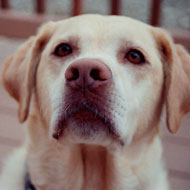New dog health report published

The Kennel Club contacted 385,000 owners of registered dogs from 215 recognised dog breeds.
Lipoma and skin cysts are the two most common conditions affecting live dogs, according to the Kennel Club's latest breed health survey.
Other conditions in the top five were hypersensitivity (allergic) skin disorders, arthritis and otitis externa (ear infection).
The survey received responses about more than 43,000 living dogs and over 5,600 deceased dogs, making it the largest of its kind. It aimed to identify the most common conditions affecting living pedigree dogs, as well as the most prevalent causes of death and reasons for euthanasia.
In total, the Kennel Club contacted 385,000 owners of registered dogs from 215 recognised dog breeds. Of those to respond, more than 65 per cent of living dogs were said to be unaffected by any disease conditions.
The top five most frequently reported causes of death were old age, unspecified cancer, unknown conditions, cardiac heart failure and kidney failure. The average life span was 10 years.
Aimee Llewellyn, head of health and research at the Kennel Club, commented: "The information collected from the survey is invaluable in prioritising health concerns for pedigree breeds as a whole as well as on a breed by breed basis.
"This will help everyone from owners and breeders to vets and researchers identify any potentially inherited conditions across different breeds and help improve the health of future generations of dogs. "These results give an idea of where progress has been made, where it still needs to be made, and how it is best to make appropriate changes."
The survey was carried out in 2014, a decade after the Kennel Club's 2004 Purebred Dog Health Survey. A more in-depth study of the results will hopefully be published as a scientific paper later in the year.
To read the full report, visit: http://www.thekennelclub.org.uk/vets-researchers/pedigree-breed-health-survey-2014



 The Veterinary Medicines Directorate (VMD) is inviting applications from veterinary students to attend a one-week extramural studies (EMS) placement in July 2026.
The Veterinary Medicines Directorate (VMD) is inviting applications from veterinary students to attend a one-week extramural studies (EMS) placement in July 2026.